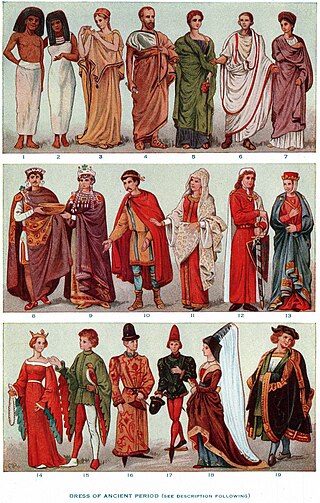
Clothing is any item worn on the body. Typically, clothing is made of fabrics or textiles, but over time it has included garments made from animal skin and other thin sheets of materials and natural products found in the environment, put together. The wearing of clothing is mostly restricted to human beings and is a feature of all human societies. The amount and type of clothing worn depends on gender, body type, social factors, and geographic considerations. Garments cover the body, footwear covers the feet, gloves cover the hands, while hats and headgear cover the head, and underwear for private parts.

Nicholas Wulstan Park is an English animator and filmmaker who created Wallace and Gromit, Creature Comforts, Chicken Run, Shaun the Sheep, and Early Man. Park has been nominated for an Academy Award a total of six times and won four with Creature Comforts (1989), The Wrong Trousers (1993), A Close Shave (1995) and Wallace & Gromit: The Curse of the Were-Rabbit (2005).

Comfort women or comfort girls were women and girls forced into sexual slavery by the Imperial Japanese Army in occupied countries and territories before and during World War II. The term "comfort women" is a translation of the Japanese ianfu (慰安婦), which literally means "comforting, consoling woman". During World War II, Japanese troops forced hundreds of thousands of women from Korea, the Philippines, Vietnam, China, and other countries into brothels where they were sexually enslaved and repeatedly raped. Many women died or committed suicide due to brutal mistreatment and sustained physical and emotional distress. After the war, Japan's acknowledgment of the comfort women's plight was minimal, lacking a full apology and appropriate restitution, which damaged Japan's reputation in Asia for decades.

"Woodstock" is a song written by Joni Mitchell. At least four notable versions of the song were released in the same year, 1970. Mitchell's own version was first performed live in 1969 and appeared in April 1970 on her album Ladies of the Canyon and as the B-side to her single "Big Yellow Taxi". This publication was preceded by Crosby, Stills, Nash & Young's cover version, which appeared on their March 1970 album Déjà Vu and became a staple of classic rock radio and the best-known version in the United States. A third version, by the British band Matthews Southern Comfort became the best known version in the United Kingdom, and was the highest charting version of the song, reaching the top of the UK singles chart in 1970. A fourth version by studio project The Assembled Multitude also became a chart hit.

Iain Matthews is an English musician and singer-songwriter. He was an original member of the British folk rock band Fairport Convention from 1967 to 1969 before leaving to form his own band, Matthews Southern Comfort, which had a UK number one in 1970 with Joni Mitchell's song "Woodstock". In 1979 his recording of Terence Boylan's "Shake It" reached No. 13 on the US charts.
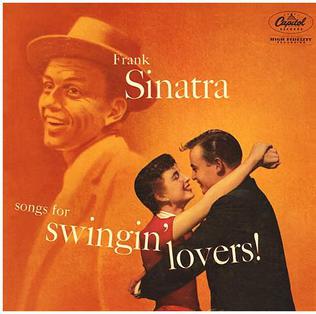
Songs for Swingin' Lovers! is the tenth album by American singer Frank Sinatra and his fourth for Capitol Records. It was arranged by Nelson Riddle and released in March 1956 on LP and January 1987 on CD. It was the first album ever to top the UK Albums Chart.
"God Rest You Merry, Gentlemen" is an English traditional Christmas carol. It is in the Roxburghe Collection, and is listed as no. 394 in the Roud Folk Song Index. It is also known as "Tidings of Comfort and Joy", and by other variant incipits.

"The Comfort Zone" is a song by American singer and actress Vanessa Williams, released in October 1991 as the second single from her second studio album of the same name (1991). The song peaked at number two on the US Billboard Hot R&B/Hip-Hop Songs chart and was nominated for the 1993 Grammy Award for Best Female R&B Vocal Performance.
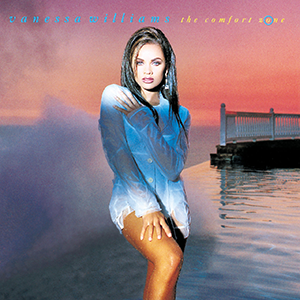
The Comfort Zone is the second studio album by American singer and actress Vanessa Williams, released on August 20, 1991, by Mercury's Wing Records Label.
Southern Comfort is a brand of liqueur.
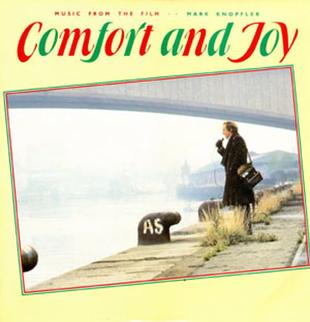
Comfort and Joy is the third soundtrack album by British singer-songwriter and guitarist Mark Knopfler, released in 1984 by Vertigo Records. The album contains music composed for the 1984 film Comfort and Joy, written and directed by Bill Forsyth.

"The Divine Image" is a poem by the English poet William Blake from his book Songs of Innocence (1789), not to be confused with "A Divine Image" from Songs of Experience (1794). It was later included in his joint collection Songs of Innocence and of Experience (1794). In this poem Blake pictures his view of an ideal world in which the four traditionally Christian virtues–Mercy, Pity, Peace and Love–are found in the human's heart and stand for God's support and comfort. Joy and gratitude are sentiments expressed through prayer for the caring and blessing of an infallible almighty God and are shared by all men on Earth encompassing a sense of equality and mutual respect. The title of the poem refers to the Book of Genesis Chapter 1 verse 26: 'And God said: Let us make man in our image'.(KJV)

Comfort is a sense of physical or psychological ease, often characterised as a lack of hardship. Persons who are lacking in comfort are uncomfortable, or experiencing discomfort. A degree of psychological comfort can be achieved by recreating experiences that are associated with pleasant memories, such as engaging in familiar activities, maintaining the presence of familiar objects, and consumption of comfort foods. Comfort is a particular concern in health care, as providing comfort to the sick and injured is one goal of healthcare, and can facilitate recovery. Persons who are surrounded with things that provide psychological comfort may be described as being "in their comfort zone". Because of the personal nature of positive associations, psychological comfort is highly subjective.
The first time Elton John toured was in 1970 to support his second album Elton John. The first leg focused around the London area excluding the last two nights of the tour.

Mark Everett Comfort was a community activist who worked in early Oakland grassroots civil rights movements in the 1960s, before moving to Lowndes County, Alabama.

"Southern Comfort Zone" is a song co-written and recorded by American country music singer Brad Paisley. It was released on September 27, 2012, as the lead single from his 2013 album Wheelhouse. Paisley wrote this song with Kelley Lovelace and Chris DuBois.
"Night" is a poem in the illuminated 1789 collection Songs of Innocence by William Blake, later incorporated into the larger compilation Songs of Innocence and of Experience. "Night" speaks about the coming of evil when darkness arrives, as angels protect and keep the sheep from the impending dangers.

"Creature Comfort" is a song by Canadian indie rock band Arcade Fire. It was released on June 16, 2017, as the second single from the band's fifth studio album, Everything Now. The song was co-produced by Portishead's Geoff Barrow and Pulp bassist Steve Mackey.
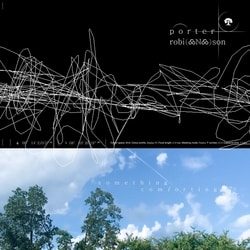
"Something Comforting" is a song recorded by American electronic music producer Porter Robinson. Released on March 10, 2020 as the second single from his second studio album Nurture, the song was written and produced by Robinson himself. Robinson also provided the vocals for the track. The song is representative of Robinson's struggles with creative blocks and depression.

Textile performance, also known as fitness for purpose, is a textile's capacity to withstand various conditions, environments, and hazards, qualifying it for particular uses. The performance of textile products influences their appearance, comfort, durability, and protection. Different textile applications require a different set of performance parameters. As a result, the specifications determine the level of performance of a textile product. Textile testing certifies the product's conformity to buying specification. It describes product manufactured for non-aesthetic purposes, where fitness for purpose is the primary criterion. Engineering of high-performance fabrics presents a unique set of challenges.
















